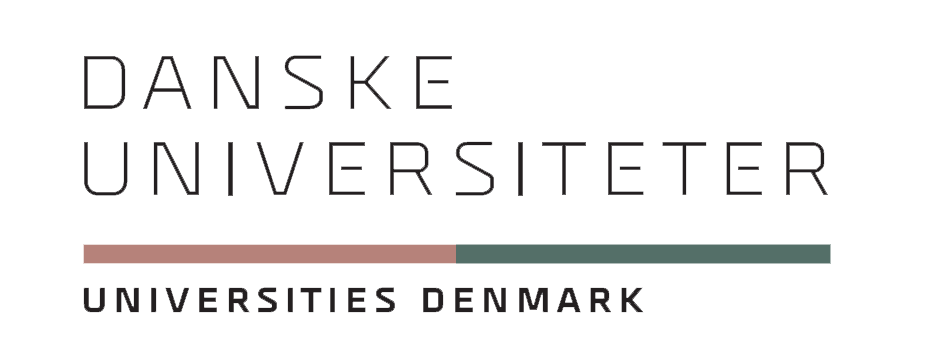Universities Denmark – Position Paper on the future EU Framework Programme for Research and Innovation (FP10)
In this paper Universities Denmark, which represents the entire Danish university sector, outline our key priorities for a successful and ambitious new European Framework Programme (FP) for research and innovation.
1) Ambitious budget – reflecting the needs and global competition.
We propose an ambitions budget for the 10th European Framework Program (FP10). An ambitions budget is crucial if we are to deliver the radical scientific breakthroughs and innovative solutions to manage the global challenges beyond 2030. By committing to an ambitious and strong FP10 the European Union will show global leadership by delivering solutions to European and global problems based on excellent research and innovation. Ambition is crucially needed if Euro-pean leadership in frontier areas of scientific knowledge and key technologies are to be achieved. Only if we commit resources and very actively engage the full knowledge value chain – from the earliest stages of frontier research to the latest stages of close-to-market development – will this be possible.
We further call on the European Union to enact measures that ensures that the 3% GDP target for research & innovation agreed by the European Council in Barcelona on 15 and 16 March 2002, and reiterated by the European Commission in 2020, and by the European Council in Brussels on 23 March 2023 is met. In the global race for new knowledge, Europe must show ambition and remove obstacles, so our most excellent research and innovation ecosystems do not lose competitive edge.
2) Pre-competitive research – for challenges beyond our current reach or attention
The experiences of the past 5 years with a global pandemic, outright wars, and in-creased pressure on democracy and rule of law, strongly emphasise the dire need of a broad and deep scientific base that can deliver knowledge and solutions to miti-gate unforeseen societal crises. To maintain this base, it is crucial that ERC and Marie Skłodowska Curie Actions are not thematised and exempt from specific and systematic targets for innovation results. We argue that supporting and expanding this base should not be isolated to ERC, Marie Skłodowska Curie Actions, and EIC’s bottom-up programmes, but integrated in all FP10 sub-elements and instruments.
Across the whole of FP10, pre-competitive research must be prioritised alongside top-down defined and mission-oriented research to face the global challenges. The nature of these challenges demand step changes across the whole knowledge and innovation eco-systems in Europe; the decline seen in Horizon Europe with regards to focus on collaborative research with novel approaches endangers this. We find that too much emphasis on ‘close-to-the-short term-needs’, as seen in Horizon Eu-rope, will lead to outputs with small or no long-term impact.
3) The need to strive for excellence
We argue that excellence must remain the overarching criteria for receiving fund-ing in FP10 whether it is a proposal for a coordination and support action that will help the European Commission create a roadmap, a comprehensive Innovation Ac-tion which try to drive change in society, or an ERC proposal which dive into an un-known dark spot in the knowledge universe.
We do not see the focus on excellence as a negation of the needed capacity building within research and innovation in the different regions of the EU. We do however question the strategy to achieve capacity building. In our view the EU’s structural and regional programmes, as well as programmes like Digital Europe, Ceative Eu-rope, 4th Health programme etc. are much more fruitful venues when striving for capacity building. We also wish to point to the crucial role and responsibility of the EU member states to prioritise own investment in their education, research and in-novations ecosystem to build capacity.
We find that what truly will enable newcomers to gain a stronger presence in FP10, is to create an actual level playing field for all; we believe that brilliant research and innovation can be found all over the EU, but many actors do not possess the long experience or the well-developed internal resources that is increasingly demanded to be successful. This point is further elaborated below.
4) The need of FP10 being inviting to all
In Horizon Europe we have seen many credible efforts to make life easier for par-ticipants in the proposal phase and during implementation. Shorter proposals, a well-functioning funding portal, and many other things are well-received by our re-searchers and support staff as well as collaborators from many other sectors. While burdens have been eased in some areas, in other areas the aim of a more simplified and easier-to-approach Horizon Europe have been negated. Despite some efforts, especially the work programmes in Pillar 2 are both restrictive and prescriptive at both destination and topic level.
We argue that by making FP10 much simpler at a fundamental level it will broaden participation and enhance the research and innovation community’s ability to react to future challenges. Coming strategic plans should clearly, and based on hard con-templation and prioritisation, state the aims of the given elements and themes in FP10. Destinations should further narrow down the overall direction of what needs to be achieved regarding long-term and sustainable impact. However, directional-ity, refinement, and presentation of the expected outcomes at the topic level must avoid defining detailed scoping or approaches to achieve research and innovation outputs that contribute to both outcomes and long-term impact.
We simply suggest that it is best to leave it up to the many actors to pick any suita-ble approaches to solve a given challenge; this will further the use of novel solu-tions, newly developed methods and techniques, and allow actors to be more open to new constellations when it comes to collaborators.
Combined with further simplification on the more technical aspects of participation in FP10, this will take away some of the present advantages that ‘old hands’ have. Simpler proposals, simpler rules, and much simpler work programmes will create the level field that can make excellent newcomers successful in FP10.
5) Transdisciplinarity
We argue that only by approaching problems and solutions through a truly trans-disciplinary lens can we realise the potential of European research and innovation. Recent crises have shown that we cannot predict the research and innovation we will come to depend on in the future. Our resilience to past and present crises is build on scientific results and technologies which have developed incrementally. We argue that it will only result in an own goal if we imagine that it is possible to predict the needs of tomorrow. We must therefore place researchers an innovators in key roles when it comes to long-term strategic planning in FP10.
A clear expression of this is the need to better and more deeply integrate the in-sights and human centred approaches of the social sciences and humanities (SSH) that can help pinpoint aspects of underlying structures of socio-economic, cultural, demographic, and political developmental trends. By prioritising this approach we believe the EU will be better positioned when tackling “wicked problems” (under-stood as complex problems with no obvious solution) e.g. concerning the climate crises. The current approaches based on largely disciplinary siloed scientists fall short. Whether it is climate change, technological developments such as AI, socio-logical or demographic change, or mental health, there is a growing understanding that these are complex systems that require complex interventions of different kind of research, in particular, transdisciplinary approaches.
6) Mission-driven research and innovation
We believe that the Mission-driven approach to research and innovation has great potential to create deep impacts and change in society – but only if it is enforced substantially. Such an approach must build on a model of multi-level governance defined by a broad sense of governance to create synergies and building on com-mon knowledge for meeting the societal needs.
To be successful missions must be bold, activating research and innovation across sectors, actors and disciplines and create synergies to regional/national initiatives and funding programmes. Mission-driven research and innovation in FP10 must build on strategic alignment to solve societal challenges. The mission approach should enable bottom-up solutions and experimentation to ensure cutting edge so-lutions and European leadership.
The traditional approach to funding can at times be too slow to deliver. There is a need for greater agility and fast adaption to tackle the challenges of today. We ar-gue that mission-driven partnerships create a better pathway to generating and putting into use the newest knowledge. This can be done through providing portfo-lio management of activities and coordinated approaches to results and learning. Mission-driven partnerships should develop roadmaps within each mission area based on large dynamic partnerships from all parts of the quadruple helix that has the competences to prioritize direction. This creates an overall level of knowledge in the partnership, which would not come about if the projects were individually funded.
FP10 should streamline the partnerships into larger partnerships that focus on open mission-driven research and innovation. There is a need to build an agile sys-tem where strategic and political aspirations coincide with the freedom to pursue scientific goals and groundbreaking research that can accelerate time to impact and time to market.
7) Innovation in the EU
We suggest increasing the focus on stimulating an innovation culture across mem-bers states to increase a local resilience to whatever challenge that may arise in the future – but where each ecosystem can draw on each other’s strongholds.
We argue that universities should play a key role as trusted partners within a wider European innovation ecosystem that boosts disruptive innovation. The role of the universities should be on connecting gaps in the innovation ecosystem through co-operation and co-creation. To be able to effectively assume this responsibility, we underline the vital importance of appropriate framework conditions and sustaina-ble funding to deploy co-creation practices and develop the right skills and mind-sets within and beyond universities to ensure a safe, secure, and sustainable future.
We argue that innovation support should be a horizontal part of FP10. There is a need to focus on the support structures across the EU to ensure better impact and leadership. There are several innovation leaders in the EU regions but often the ca-pacities do not extend to other regions. Additionally, the funding instruments from member states primarily support innovation within the local/regional ecosystems. To ensure a more coherent and less fragmented innovation landscape in the EU, there is a need for further cooperation between the regional ecosystems to create strong innovation hubs across the EU. The FP10 should focus on:
- Stimulating and facilitating more investment across borders/ecosystems
- Stimulating innovation potentials as an integrated part of EU-projects by allowing for transition funds to be “committed” in advance
- Supporting researchers to identify and navigate career paths beyond aca-demia
- Making the student-based ideas accessible to potential partners, investors etc. across borders




